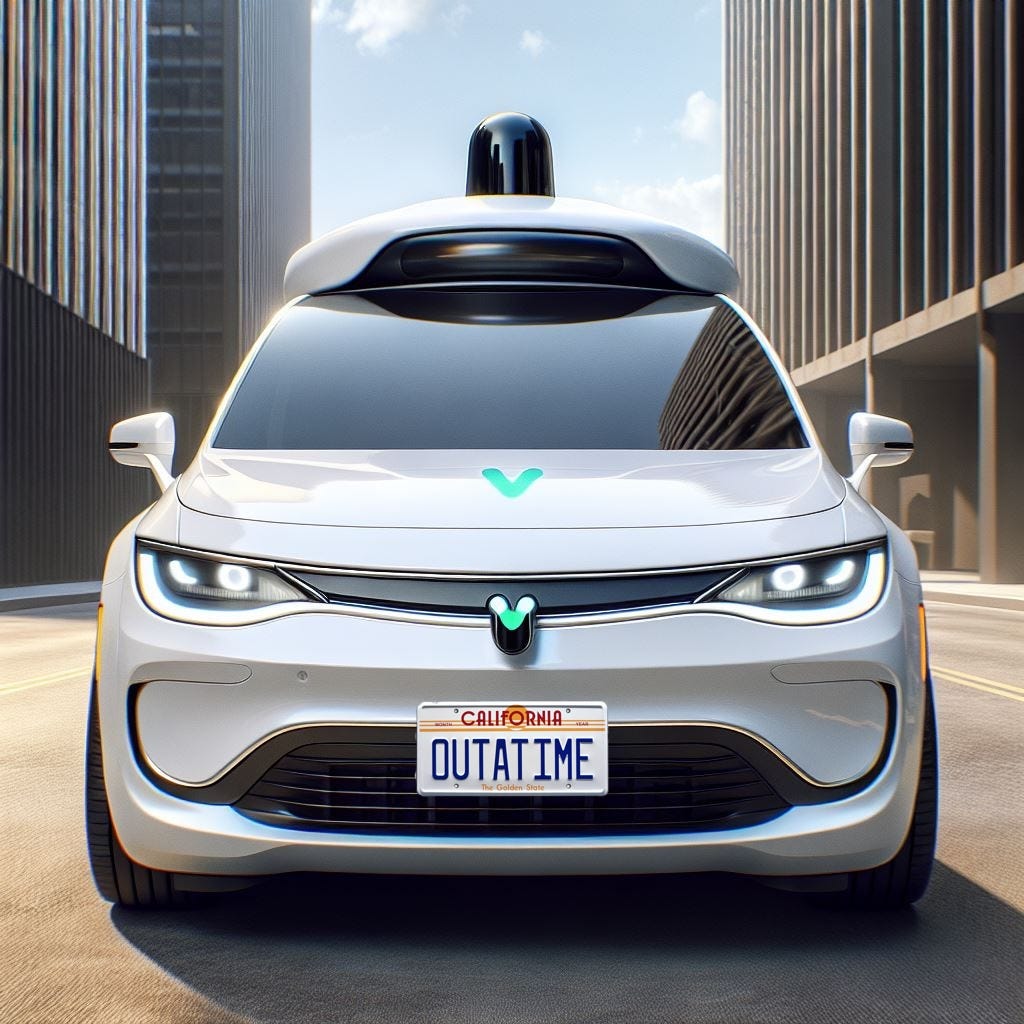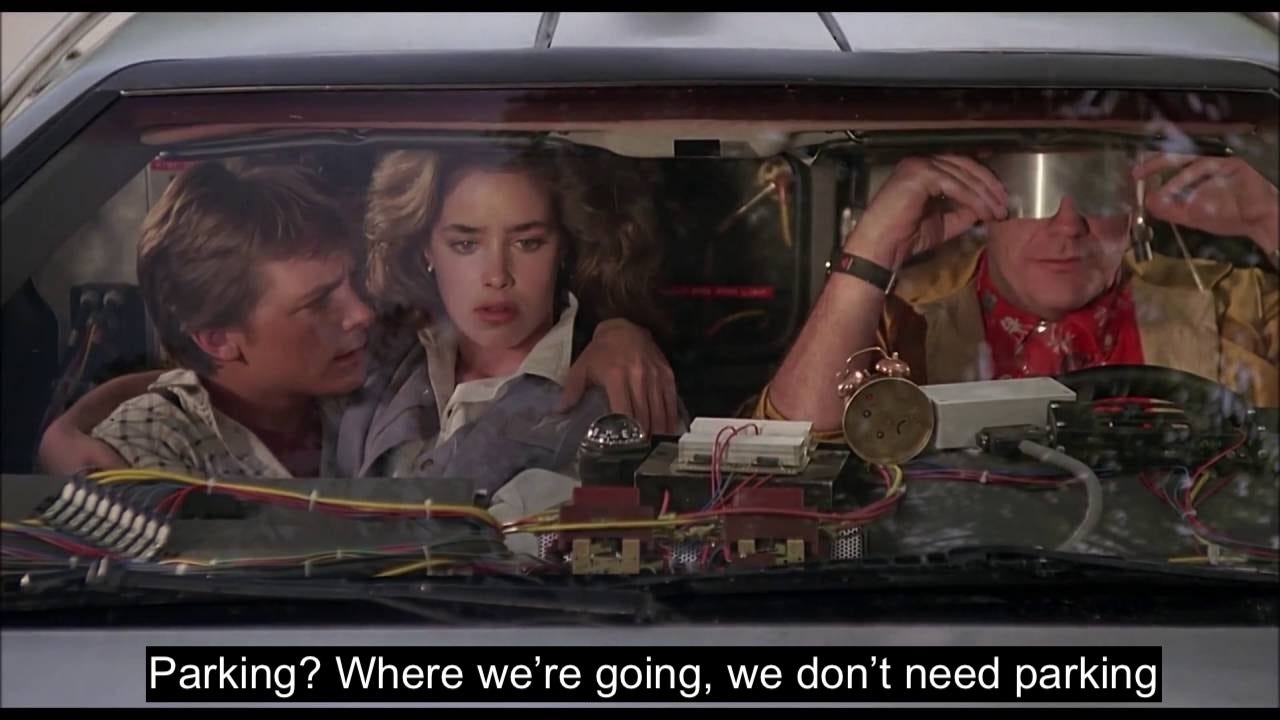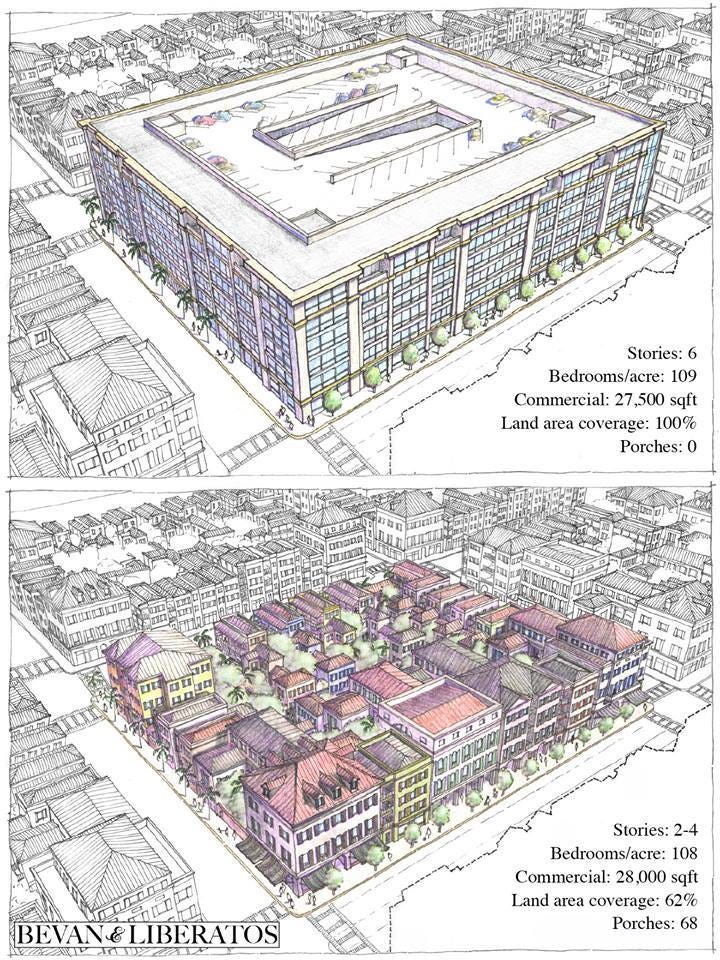Parking? Where We're Going, We Don't Need Parking.
The promise of Back to the Future was flying cars, but self-driving vehicles might be just as good.
The famous line from Back the Future (1985) “Roads? Where we’re going, we don’t need roads,” delivered perfectly by Christopher Lloyd as ‘Doc’ Brown, has lived on in our collective memory with dreams of flying Deloreans.
Unfortunately, we never got flying cars that were promised to us by the fictionalized version of 2015 from the 1980s. We couldn’t even get hoverboards! (only little two-wheel fire hazards).
But our reality is becoming more like science fiction with self-driving cars. This technology is basically a robot driving us around. It’s the Johnny Cab from Total Recall (1990), albeit not as cool as the cyberpunk kitch aesthetic.
Autonomous vehicles (AVs) are still in the nascent stage. The technology is already on our roads and will only proliferate. It will profoundly change society in ways we imagined flying cars would do in the 1980s.
No More Parking
A key reason I am bullish on self-driving cars is because of parking.
The appetite for parking knows no bounds. Parking lots and spaces gobble up the most valuable parts of our cities. It causes massive fights and angst between and amongst our communities. Not to mention the high cost of free parking and the general drain on resources.
In short, parking ruins places.

With self-driving cars, we don’t need parking anymore. Not in the same way that we currently structure society.
Better Than Flying Cars
Even flying cars would need to be parked somewhere nearby.
Imagine an actual reality with flying cars. You go to a restaurant, you still need to find parking. Land the car, park, and walk over to the restaurant. That’s really the same model we already have now.
There was even a scene in Back to the Future II (1989) where Doc gets stuck in sky traffic, where Old Biff uses it as a cover to tail the Delorean. A traffic jam basically ruined the timeline, if you ask me.
But with self-driving cars, this scenario requires no parking for the destination at all. Simply call the Johnny Cab and have him drop you off at the door. It drives off for the next passenger, you never think about parking.
We didn’t get the hoverboard, or time-traveling Deloreans, but autonomous vehicles are still a pretty good sci-fi innovation come to life.
AVs and Parking
In a world of mass autonomous vehicles, there can simply be a fleet zooming around cities awaiting passengers. When they aren’t being used, the AVs can go wait in far-off parking structures, ones that aren’t centrally located taking valuable space in our downtowns or on our beaches.
The technology is already a reality in China, where autonomous buses have been in operation since at least 2019 (see the dated video below). Even here in California, Waymos are already being tested on our roads, intermingling with human drivers.
Many Americans will likely continue to own their own vehicles, so self-driving cars won’t solve all of our problems. But the technology should still alleviate parking demand in positive ways.
AVs will be personal valets. Wake up in the morning, push a button, your car drives up to your door. We no longer need our cars just sitting in the garage wasting space.

Likewise, families don’t have to resort to fisticuffs in the Costco parking lot to get a close spot. Instead, a vehicle can drop a family off safely at the entrance and then later come back when they are in the checkout line.
Instead of massive parking lots at our front doors, we can have courtyards. This can make our cities, towns, and even suburbs much better places.
Issues and Reality of Self-Driving Cars
Self-driving technology won’t fix all of our problems. Autonomous vehicles, for instance, will not be the solution for getting 100,000 people to a central location, venue, or stadium. Well, unless that autonomous vehicle is a train.
The reliance on self-driving cars does not curb our reliance on extractive energy and natural resources. Those are broad systemic concerns. There are no silver bullets when grappling with societal-level issues. But self-driving cars could be a positive incremental step.
This sci-fi technology can help us advocate for older, traditional cities or human development, an incrementalism as advocated by Strong Towns.
I’m not simply an Elon Musk fanboy touting his latest flashy endeavor. No, Tesla with its self-driving tech and Robotaxis is likely behind industry leaders like Waymo, and definitely far from what’s happening in China.
Granted, there will still be fights over parking. I predict the next big culture war—or at least one in the next decade—is going to be about the adoption of autonomous vehicles.
Even as debates already heat up, AVs should at least help end parking minimums and mandates. We can finally focus on housing and other amenities in the forms people love. Forms that came about before cars gobbled up so much of our space.
There are certainly other advantages that self-driving cars will bring beyond parking:
We won’t be forced to have wide streets that are forgiving for bad or distracted drivers.
We don’t have to let teens experiment with high-speed driving until they are more mature and capable.
We can simply put up bollards and barriers everywhere because AVs can successfully navigate around them, unlike human drivers.
Each of these issues warrants a deeper post on its own. For now, I’m OUTATIME.







Interesting read- thanks for sharing!
For many of the solutions you proposed, I feel like AVs don't provide a significant advantage over ridesharing/using a taxi (no need to park, dropped off/picked up right out front, vehicle that can be used by others). If I'm reading that correctly then, it seems that private vehicle ownership (whether ICE, EV, or AV) is the real problem, and that a "Netflix" model of some kind where we use the service but don't really own the product is the real solution to the problem (regardless of whether it's a human-driven car, semi-AV, or fully-AV). Not endorsing that idea (and not sure that I would want that world), but it seems to solve the problems you cite.